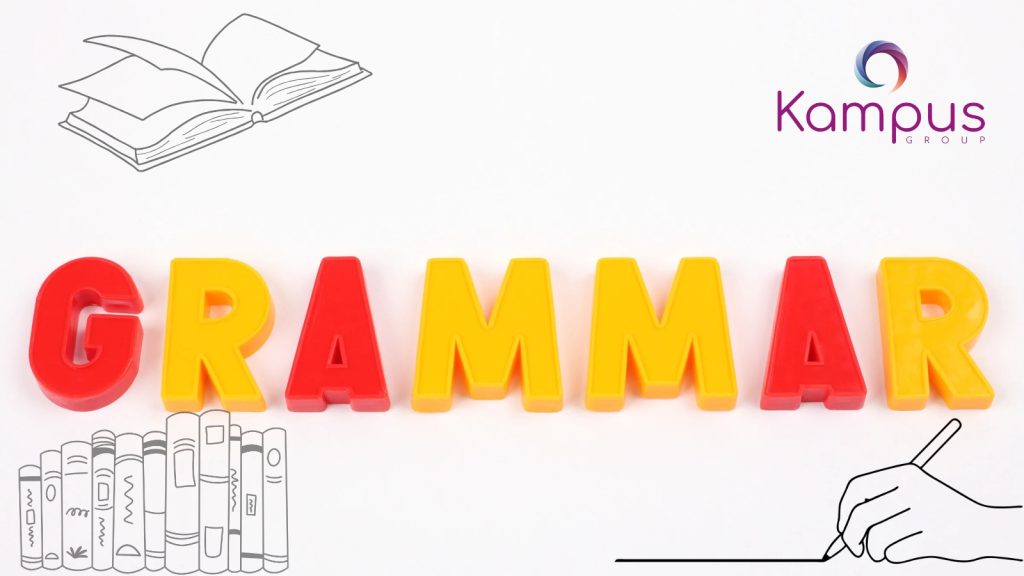Understanding subjects and objects is essential for mastering English grammar. Whether you’re preparing for an English proficiency test like IELTS or simply improving your writing and speaking skills, knowing how subjects and objects function in sentences will enhance your communication.
This guide will explain subjects and objects in detail, including definitions, types, examples, and a quiz to test your understanding.
What Are Subjects and Objects in English?
Subjects and objects play opposite roles in a sentence:
- The subject is the ‘doer’ of the action—it performs the verb.
- The object receives the action of the verb.
For example:
- “We are watching Netflix.” (Subject: We, Object: Netflix)
- “The teacher gave Sarah a book.” (Subject: The teacher, Direct Object: a book, Indirect Object: Sarah)
Let’s explore these concepts further.
Subjects in English Grammar
Definition of a Subject
A subject is a noun or pronoun that performs the action in a sentence. It usually appears before the verb.
Types of Subjects
- Simple Subject – A single noun or pronoun acting as the subject.
- Example: “Jason works.” (Jason is the subject.)
- Compound Subject – Two or more nouns/pronouns joined by ‘and’ or ‘or.’
- Example: “Gemma and Mike are having lunch.” (Gemma and Mike are the subjects.)
- Complete Subject – The simple subject plus modifiers (adjectives or additional phrases).
- Example: “The little girl from my class presented an excellent speech.” (The little girl from my class is the complete subject.)
Examples of Subjects in Sentences
- I am thirsty. → Subject: I
- The employees are in a meeting. → Subject: The employees
- Gemma, Gillian, and Mike are having lunch. → Subject: Gemma, Gillian, and Mike
- My younger brother loves football. → Subject: My younger brother
- The old book on the shelf belongs to my grandmother. → Subject: The old book on the shelf
Objects in English Grammar
Definition of an Object
An object is the noun or pronoun that receives the action of the verb. It answers the questions what? or whom?
Types of Objects
- Direct Object – Receives the action of the verb directly.
- Example: “Mike loves doughnuts.” (Mike loves what? Doughnuts = direct object.)
- Indirect Object – Identifies to whom or for whom the action is done. Comes before the direct object.
- Example: “The teacher gave Tom a book.” (Direct Object: book, Indirect Object: Tom)
- Object of a Preposition – Follows a preposition (e.g., in, on, from, with) and completes a prepositional phrase.
- Example: “Emily is from Ireland.” (Preposition: from, Object: Ireland)
Examples of Objects in Sentences
- James got his IELTS scores yesterday. → Direct Object: his IELTS scores
- The bartender made Gracie a drink. → Direct Object: a drink, Indirect Object: Gracie
- Josh painted a flower for his school project. → Direct Object: a flower
- Can you give Tomoko the keys? → Direct Object: the keys, Indirect Object: Tomoko
- I put the orange cat out in the garden. → Direct Object: the orange cat
Grammar Quiz: Identify the Subjects and Objects
Find the Subject
- All the children in the class study maths.
a) study
b) maths
c) all the children in the class - They took the General Training IELTS test for migration purposes.
a) General Training IELTS test
b) They
c) migration purposes - For lunch, Mike and Gemma ordered burgers and chips.
a) For lunch
b) Mike and Gemma
c) burgers and chips - Gagan and Daniel received an award for players of the year.
a) Gagan
b) Daniel
c) Gagan and Daniel
d) players of the year - Next year, I want to go to university in Sydney.
a) Next year
b) I
c) university in Sydney
Find the Object
- Josh painted a flower for his school project.
a) Josh
b) flower
c) school project - The cafe baked their own pies.
a) The cafe
b) their
c) their own pies - Janet has to practise football every single day if she wants to become a professional.
a) Janet
b) practice
c) football
d) professional - The kids built a castle with Lego.
a) The kids
b) built
c) a castle
d) Lego - I will come over after I do the dishes and finish my homework.
a) I
b) the dishes
c) my homework
d) the dishes + my homework
Quiz Answers
- 1 → c,
- 2 → b,
- 3 → b,
- 4 → c,
- 5 → b
- 6 → b,
- 7 → c,
- 8 → c,
- 9 → c,
- 10 → d
Final Thoughts
Understanding subjects and objects in English is crucial for writing clear and grammatically correct sentences. By identifying subjects as the ‘doers’ of actions and objects as the ‘receivers,’ you can structure sentences more effectively. Keep practicing with examples and quizzes to reinforce your knowledge.
Want to improve further? Explore homophones, homographs, and homonyms to avoid common English mistakes!
This version keeps the information structured and readable while removing tables and page dividers. Let me know if you need any other adjustments!

